BvS and Beyond: Here's Why We Need and Deserve Batman’s One Rule
Batman's no-kill rule is widely debated, but it is a rule that we, as fans, should learn to appreciate.
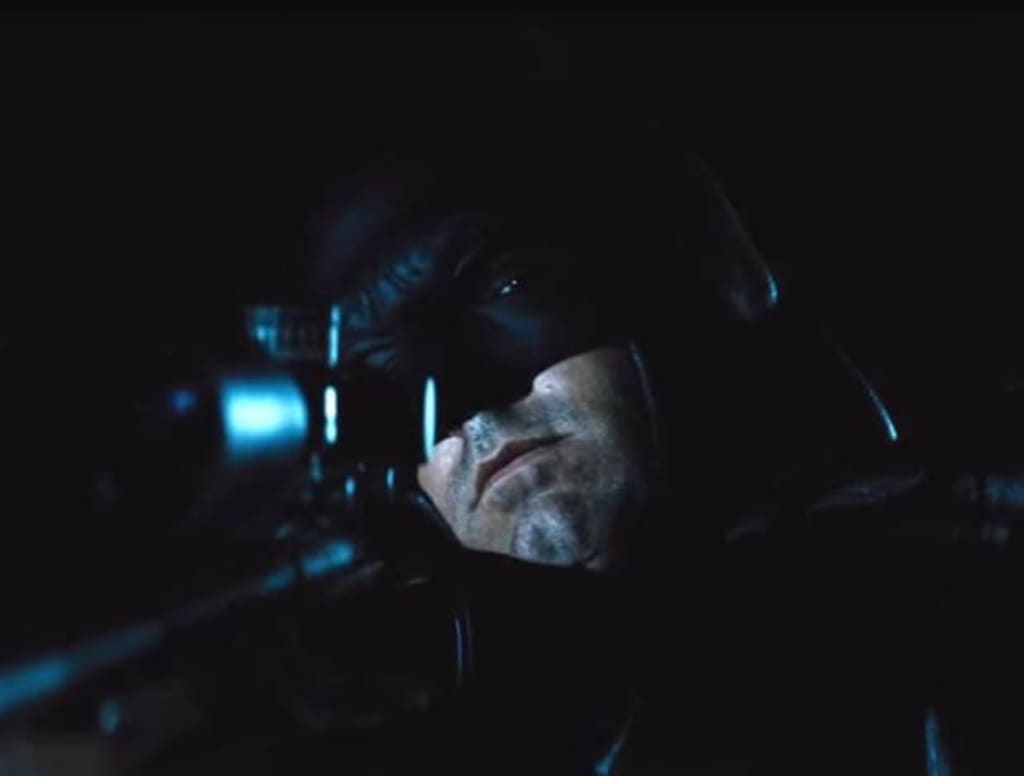
Was it overstuffed? Was Superman out of character? Should Zack Snyder be sacked?
The Ultimate Edition of Batman V Superman Dawn of Justice has been released, and the old arguments and debates are in full swing once again. We've got to know more about Lex Luthor's plot, but we also get to more of Batman’s aggressiveness.
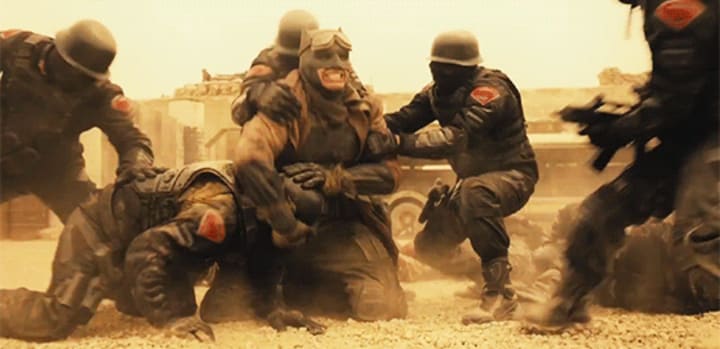
It has been noted by many people online that our favorite Caped Crusader was happy to kill criminals in Dawn of Justice, much to the unease of many fans. However, Batman renewed his more restrained and hopeful outlook following Superman’s death in the climax of the movie, and he will adopt his no-killing rule in Justice League since, in Ben Affleck’s words:

We know that Superman doesn’t usually kill – it’s hard not to following the backlash from Man of Steel’s ending – but whilst Batman’s killing was criticized in some quarters, the response was far less unanimous. For every one person who condemned Bats' blood lust in this (admittedly, very cool) scene, there seemed to be a great many more fans who did not wince at the stabbings and shootings doled out by our beloved hero.
Honestly, I hadn’t expected so many people on Facebook and across the internet to have enjoyed seeing the Dark Knight snuffing out the lives of Lex Luthor’s henchmen.
So, is his “one rule” now an inaccurate, outdated myth for modern readers and moviegoers? Should he exterminate the darkness of Gotham? Do we want a Batman who kills?
Doesn't Batman kill in the comics?
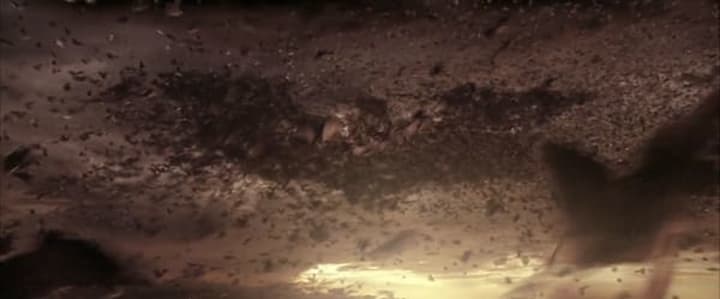
A blurry preconception?
There are those reading this right now who will be rallying arguments in support of a murderous Batman, mainly boiling down to: He has killed in the comics! This in itself is true; however, it isn’t a solid basis of the argument because comic books are so very changeable.
As other Creators on Moviepilot have explored, Batman has killed in his early days, however this was when he was originally a copy of The Shadow. He bore little resemblance to the Caped Crusader that we know and love- he had very few of his defining attributes.
The murder of the Waynes, the bat flying through the window...they’re inseparable parts of Batman lore, right? Well these didn’t feature until well after his creation! And hey, this was around the same time that he fought Japanese soldiers and called them "yellow devils," so we can't claim that everything from older comics should still stand today.
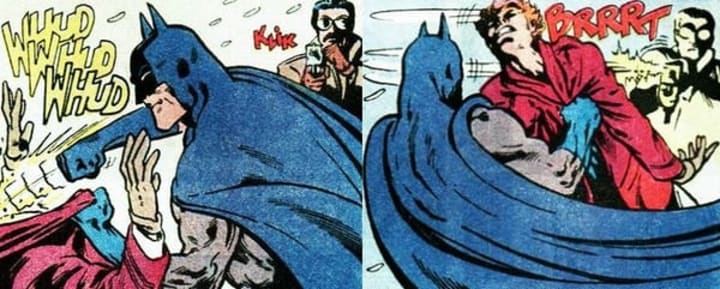
The eighties saw Batman become a little more violent with certain writers, such as Frank Miller, taking the character in darker directions and lending to the idea that Batman is a killer.
It is therefore ironic that in Miller's defining works, Batman doesn’t actually kill anyone! In Year One he prevents a young thug from falling off a fire escape to his death. And its a common misconception that he murders in The Dark Knight Returns; the infamous "death" of the mutant girl below is never referred to in the events of a story where every action of Batman's is analysed in depth by TV pundits.
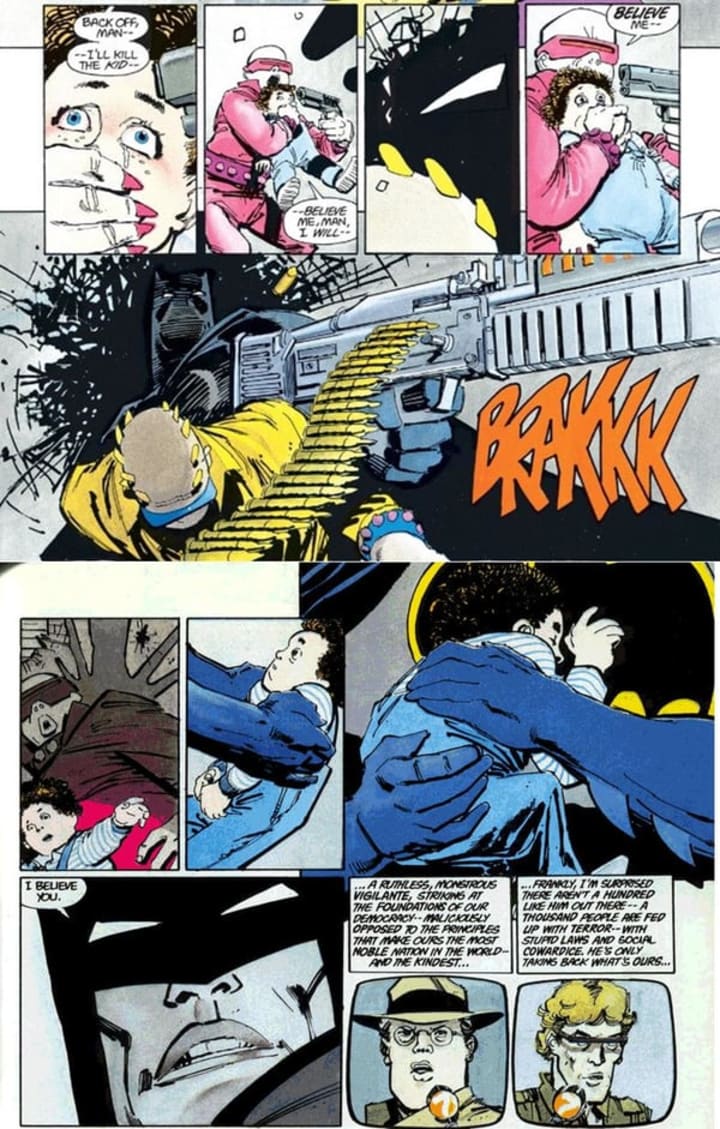
Frank Millers' The Dark Knight Returns (1986)
An inconsistency in Millers' writing? Possibly, but in all likelihood, the mutant was only wounded by Batman's shot; brutal yes, but it's still not a fatality that Batman has caused.
Additionally, the very nature of the DC’s multiverse allows more brutal versions of Batman to appear. Some stories do support the narrative of a killer-Batman, since darker reflections of our heroes are a staple of comic books (Spider-Man/Venom etc) and fiction as a whole. And for all its problems, the story of Dawn of Justice does support and reanalyze Batman's code of conduct in another sense.
But even so, these iterations are far outweighed by the volumes of canon stories where Batman does not murder anyone.
But, isn't a killer-Batman more realistic?
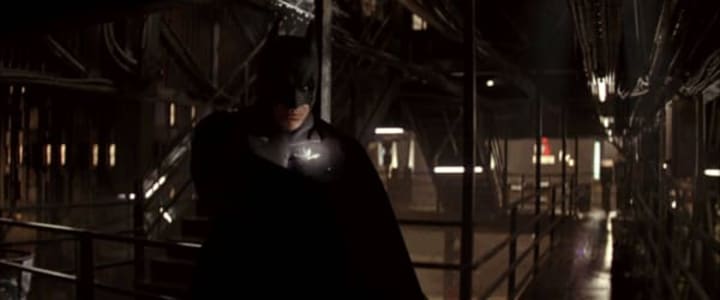
Christian Bale in Batman Begins (2005)
Many cynical readers will say that if a billionaire really did wear a cape and use hi-tech weaponry to fight crime, then death would be perhaps the most reasonable outcome sooner or later.
As we know, Batman mainly relies on his gadgets, notably Batarangs and his fighting skills. Admittedly these themselves do lean towards potentially lethal consequences, whether it’s a possible Batarang to the eye or one punch too hard to the head. Certainly these have been jokingly highlighted by fans of the Arkham City video game, evidenced in the meme below:
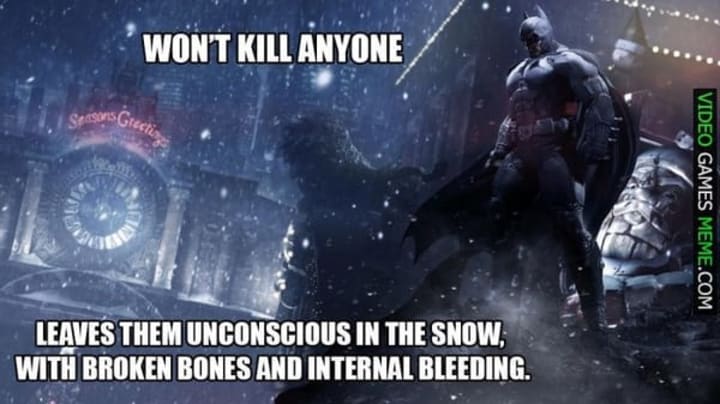
It would be easier for him wouldn't it? How could Batman fight against armed goons and still expect to walk away? It's only logical, and realistic for him to kill, right? Even with his "one rule," Batman is responsible for numerous deaths in his cinematic outings...check out the video below if you believe otherwise:
Whilst the video is true in saying that Batman has been involved in homicide during, and even before the Nolan Trilogy, the idea that Batman should kill simply because its realistic for him to do so is very disingenuous, since this kind of detail is only relevant to whatever grade of realism is being applied.
Christopher Nolan's movies are seen as a bench point for realism in superhero films. Yes Batman indirectly kills quite a few people (12 overall) across the series but he attempts to keep to his one rule, and never kills with his bare hands.
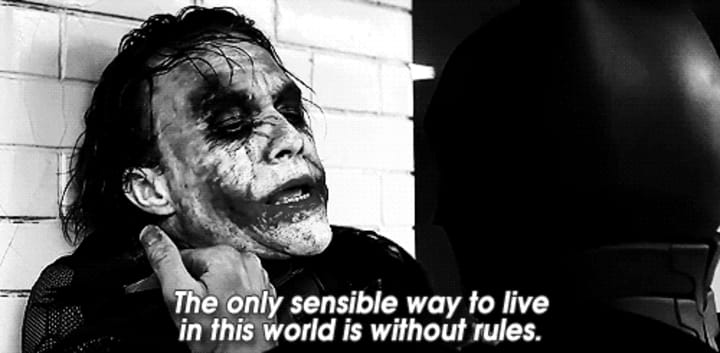
Plus, what everyone forgets is that these supposedly realistic movies also feature notably unrealistic elements, such as capes that allow Batman to glide without a harness and clouds of "fear gas". As Andrew Blair of Den of Geeksays:
"...the ridiculousness is delivered in the right context to feel temporarily plausible."
Even the darkest and most grounded of Batman iterations feature implausible aspects or situations. The current Batman himself said it best:
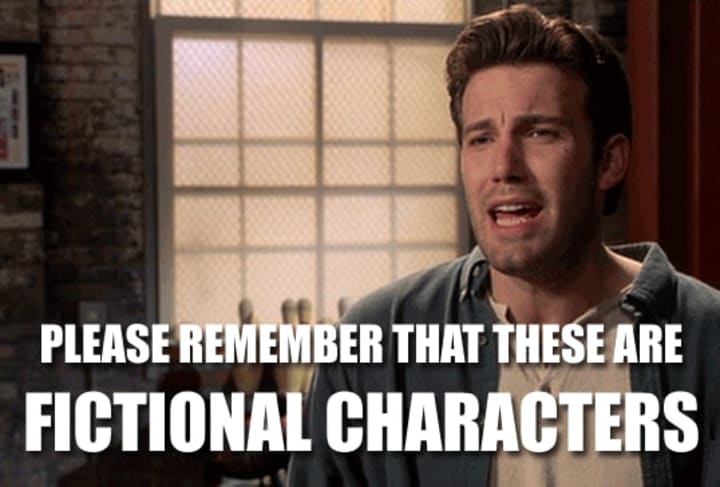
Really, why does, or should Batman be more realistic? Grittiness is not always a synonym for greatness. In the comics, Batman inhabits an improbably grim and Gothic city populated by killer clowns, crocodile men and cat-burglars in a larger world where Amazonians, Atlanteans and aliens fight Parademons from space.
This is fiction! Some suspension of disbelief is always required. These stories are allowed to feature idiosyncrasies.
What if Batman DID consistently kill?
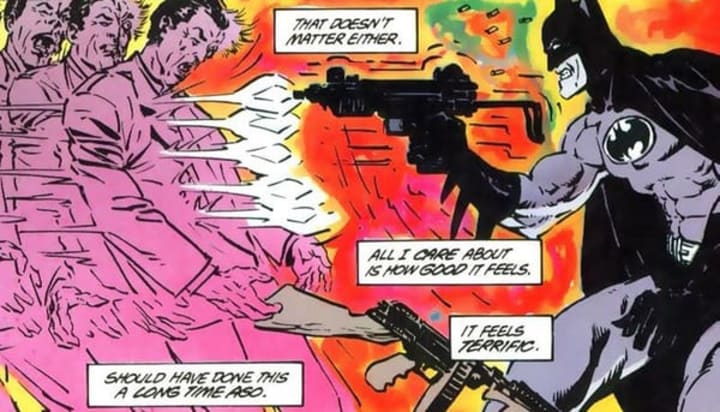
Batman: 'The Cult' (1988)
So, lets say some exec at DC decided that now was the time to set the record straight and have Batman kill his adversaries in all forthcoming comics. "Great, now we're getting some consistency," you might think. And yes, we may, for a while at least, but this could generate fundamental problems when writers are producing stories about our beloved hero of Gotham.
Batman is famous for having one of the most extensive and iconic of rogue’s galleries in comic book history; but if he is a murderer, surely there would be very few repeat encounters with them?
Some people may see that as a good thing. After all, we would get new and fresh villains and it would put paid to the revolving door of Arkham Asylum. But this line of thought doesn’t take into consideration the other problems that could, in all likelihood, arise. As gimmicks are exhausted, the antagonists would become progressively weaker and less memorable.
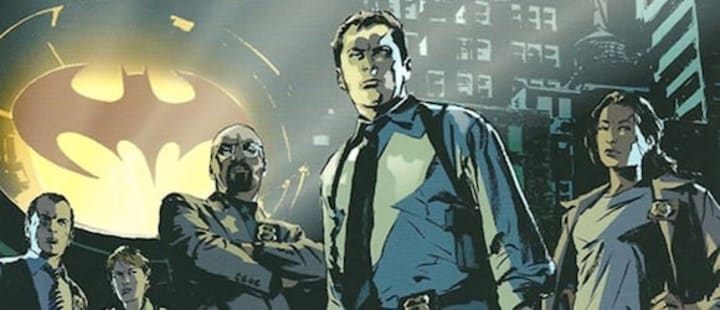
Plus, other aspects of Batman’s mythos would have to change, such as his relationship with Commissioner Gordon and the GCPD –it's doubtful whether they would be as accommodating of the vigilante if he was a killer!
And then there is the nature of his relationship with Robin. The mentor/father dynamic is one that works well for both characters, but if Batman kills, he’s essentially teaching a minor to do the same, and that’s probably not the healthiest of bonds. Let’s face it, we all like alternate interpretations of our favorite characters, but a gritty and depraved version of Batman and Robin is not one of them. Frank Miller has already shown us how darker and grittier are not necessarily better qualities...
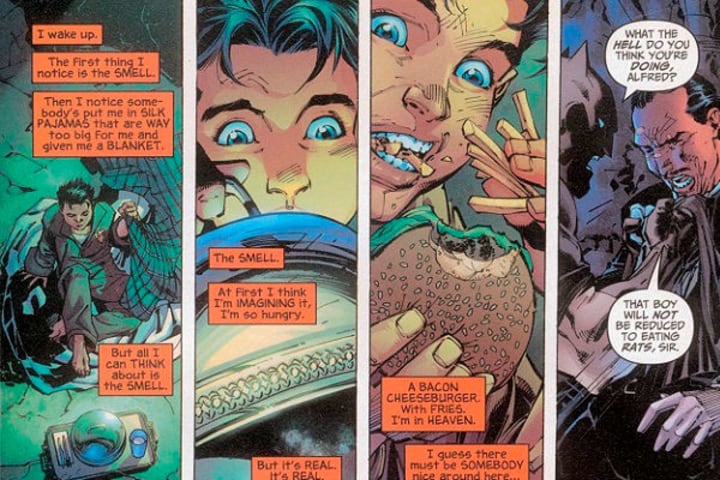
Eating rats?! And that's not all!
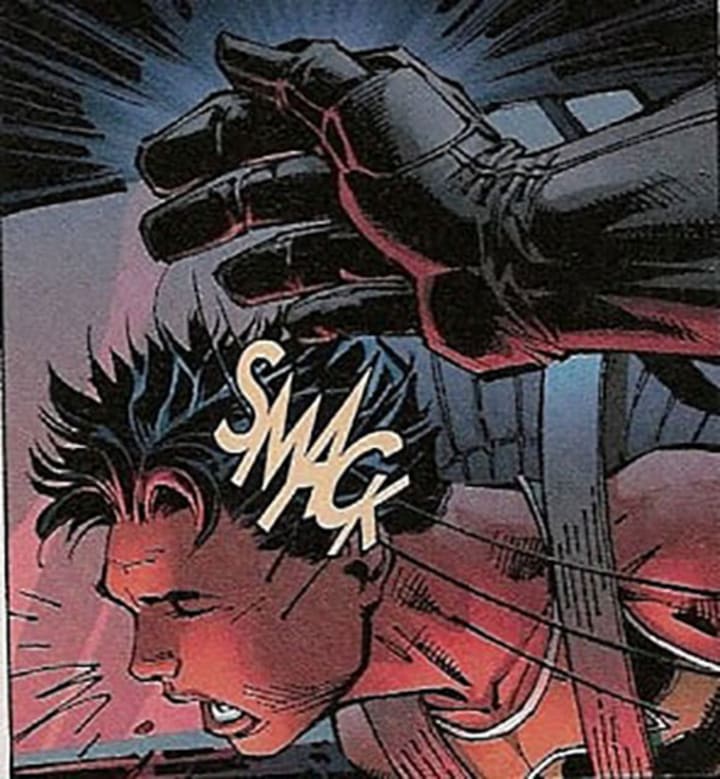
Furthermore, hey, if Batman has always been a killer, it's highly doubtful that we’d have got so many great stories if, say, he had killed the Joker many years ago. How would that have worked when Scott Snyder came to write Death of the Family and Endgame? Could he have been forced to resurrect the Joker? And wouldn’t that continue to wear out the increasingly worn trend of impermanent deaths in comics, which we all consistently mock?
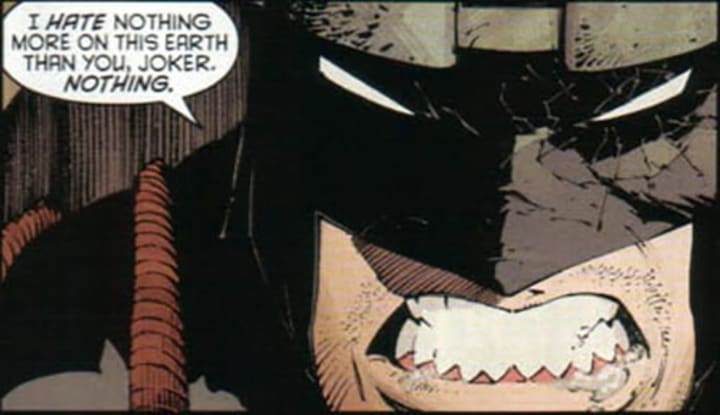
Batman: 'Death of the Family' (2013)
Many, many comics and TV episodes have gleefully depicted the battles between Batman and the Joker; it’s one of the most famous rivalries in pop-culture history, and it has so much dramatic complexity due to the contrast of the characters and both of them represent. In their confrontations, the Joker has killed or been responsible for the deaths of countless citizens, so the question of: “why doesn’t Batman kill the Joker to prevent their demise?” frequently appears.
It’s a great subject for many writers to tackle, with the moral complications and ideologies of both characters being played out for us to assess. By all rights Batman probably should kill the Joker. However this very scenario - the fact that he can't and doesn't - is a crucial part of what makes Batman work so well.
What does Batman gain from not killing?
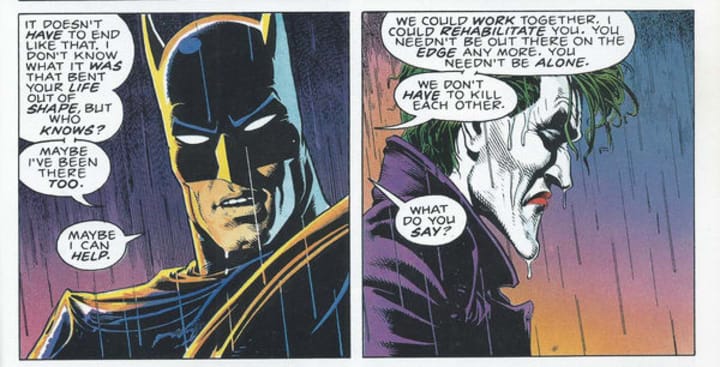
Batman: The Killing Joke (1988)
You might be thinking "how can Batman gain anything? His reluctance/refusal to kill just creates problems for him!" but really, there is more to this situation than merely that aspect.
It's a truth, universally acknowledged, that sparing someone’s life is nobler and more heroic than taking it. The happiness and humor-averse Batman becomes a bit too bleak if you murder becomes common-place in his modus operandi; a line from the published script of The Dark Knight Rises encapsulates Batman:

Indeed, if we read the character of Bruce Wayne in this way, he is a lot more hopeful. He becomes Batman as a result of his parent’s death, and fights to ensure that no one else suffers what he has suffered. In this way, it makes sense for him to be loath to end lives otherwise his war on crime simply becomes a misplaced spree of vengeance upon Gotham’s criminals, the Joker and his other colorful villains.
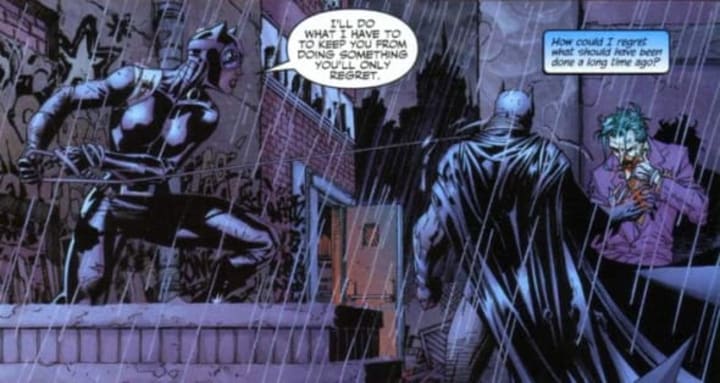
Batman: Hush (#614)
There are a variety of similar panels throughout Batman's comic book history where he agonizes over that ultimate decision - does he kill or spare the villain? And the fact that he (nearly) always does is an amazingly restrained action when in everything else, Batman is the epitome of excess.
Bruce Wayne is rich, handsome and eloquent. He's a tall and well-built man, yet he is able to creep like a ninja and remain undetected. He has pushed his body to peak levels of training, has expanded his mind by hours of learning and his millions have been depleted by technological research and his purchase of advanced equipment. Other characters have commented on his obsessive tendencies and his sometimes alarmingly disturbed mind.
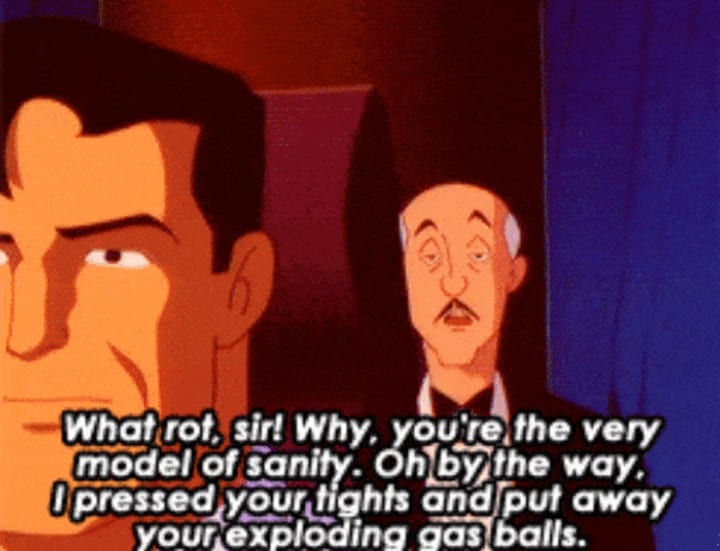
Therefore isn’t it ironic, that someone who has driven themselves to such extraordinary lengths won’t take that final step? Isn't this hypocrisy, this flaw, so understandable?
Is he being self-righteous? Definitely. Somewhat cowardly? Depends on how you view killing. By all rights of realism, Batman should kill, but by not doing so we are left with such a dramatic dilemma and one hell of a rich and complex character.

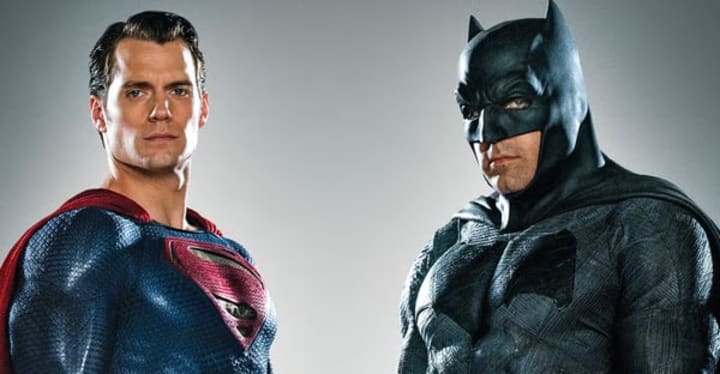
Batman and Superman in Dawn of Justice (2016)
Whilst it is always interesting to see what happens when our heroes cross that line and deal with the consequences, Batman's no-killing rule should continue to be cultivated throughout all of his forthcoming appearances.
Though the acting from Marion Cotillard is often derided in the scene below, the reply that Christian Bale's Batman gives to Gary Oldman's Commissioner Gordon is powerful, emphatic and important to bear in mind: that mercy, empathy and kindness are the nobler, truer ways of the hero.
Even the highly ridiculed "MARTHA!" moment of Dawn of Justice has a similarly clear message. Killing Superman makes him no better than the man/monster who killed his parents. His epiphany is that by destroying the Kryptonian hero, he will lose more of his own humanity.
Batman's no-killing rule is such an important part of what makes him so popular. Whilst all adaptations are free to reinterpret and differentiate the character, this important trait should always be acknowledged in some way. Even though he stands shoulder to shoulder with other antiheroes like the Punisher and Wolverine, Batman is appreciated far more widely because of the contrast between the dark and light of his character. When his compassion shows, it's all the better for it, as this scene from Batman: The Animated Series highlights:
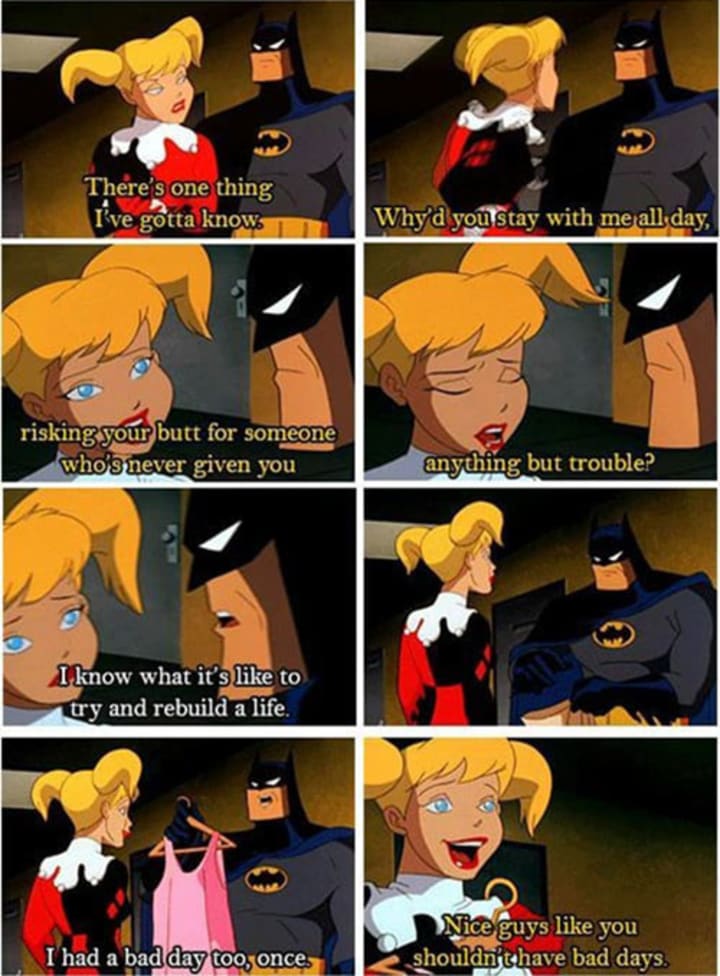
Indiana Jones, James Bond, Jason Bourne, Rambo, and Wolverine and Punisher...we have plenty of heroes who are willing to take lives, but a slim few who spare them. Yes, we live in cynical and troubled times, which is evidenced by the popularity of shows like Game of Thrones with its frequent bouts of death and betrayal recalling social feeling. But just because times are dark and tough, it doesn't mean that our heroes should forsake the light to reflect today. In the words of Gandalf from The Hobbit: An Unexpected Journey:

Batman's fight for justice, to save those who need to be saved and show mercy to villains are important because of the message inherent in these actions. His life results from murder, darkness and despair, but he has picked himself up and strives for a better world.
And these days, with things the way they are, these kind of messages are ones that we need more of.
About the Creator
Max Farrow
A fanatical film-watcher, hill-walker, aspiring author, freelance writer and biscuit connoisseur.
These articles first appeared on Movie Pilot between Jan 2016 and Dec 2017. Follow me on Twitter @Farrow91




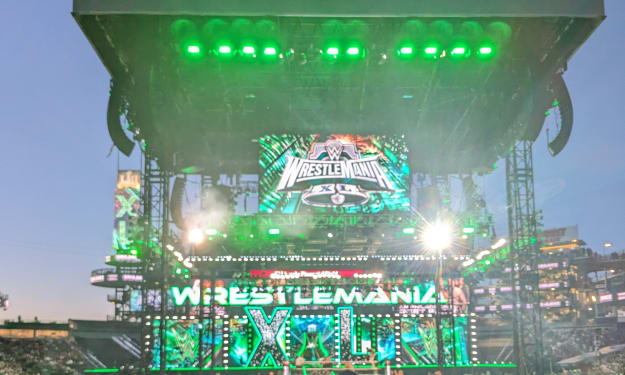

Comments
There are no comments for this story
Be the first to respond and start the conversation.